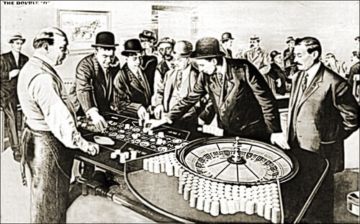Gambling has been a part of human culture for centuries, evolving significantly over time. From ancient civilizations to modern online casinos, the concept of taking risks and potentially winning big has always been enticing to individuals across the globe. This article dives into the rich history of gambling, exploring its roots in ancient times and how it has transformed into the digital landscape of online gambling.
Ancient Origins
The origins of gambling can be traced back to ancient civilizations such as Egypt, China, and Rome. In ancient Egypt, dice games were popular among both the upper and lower classes, showcasing the universal appeal of gambling. Ancient China boasts the creation of playing cards, which eventually spread to the Western world. In Rome, gambling became a spectator sport, with chariot races and gladiatorial combat often accompanied by betting.
The Middle Ages
During the Middle Ages, gambling faced periods of acceptance and prohibition depending on societal norms and religious influences. While some forms of gambling were considered sinful, others were deemed acceptable, such as early versions of lotteries. These lotteries were used to fund various public projects, including the construction of towns and universities.
The Renaissance and the Rise of Casinos
The Renaissance period marked a significant turning point in the history of gambling. Playing cards, initially introduced in ancient China, became highly popular in Europe during the 14th century. As trade and cultural exchange between nations flourished, card games spread rapidly across the continent, leading to the establishment of the first European casinos in the 17th century. These casinos provided a designated space for gambling enthusiasts to gather and indulge in various games of chance.
The Birth of Modern Lotteries
The 18th century witnessed the birth of modern lotteries, particularly in Europe. These lotteries became a source of revenue for governments, financing public projects such as roads and bridges. However, concerns over corruption and fraud led to many lottery bans and restrictions throughout the 19th century.
The Industrial Revolution and the Rise of Slot Machines
The industrial revolution in the 19th century had a profound impact on the gambling industry. The development of technology led to the creation of the first coin-operated gambling machines, known as slot machines. These machines quickly gained popularity, attracting players with their simplicity and the potential for big wins.
The Golden Age of Casinos
The 20th century marked the golden age of brick-and-mortar casinos. Las Vegas, also known as the Gambling Capital of the World, became synonymous with luxurious resorts and high-stakes gambling. Casinos began offering various games, including blackjack, roulette, poker, and slot machines, catering to a wide range of gambling preferences.
The Digital Revolution: Online Casinos
The birth of the internet in the late 20th century revolutionized the gambling industry once again. Online casinos emerged, offering convenient access to a wide range of casino games from the comfort of one’s own home. Technological advancements ensured that online gambling platforms provided immersive experiences, complete with realistic graphics and sound effects.
The Future of Gambling
The future of gambling looks promising, with continued advancements in technology and the growing popularity of mobile devices. Virtual reality and augmented reality are expected to play a significant role in creating more immersive and interactive online gambling experiences. Additionally, the legalization and regulation of online gambling in various jurisdictions are leading to increased accessibility and security for players worldwide.
Conclusion
Gambling has come a long way from its ancient origins to the digital landscape of online casinos. Throughout history, gambling has captivated individuals across cultures, offering excitement, entertainment, and the chance to win big. As the gambling industry continues to evolve, one can only anticipate more innovations and transformations to come.
